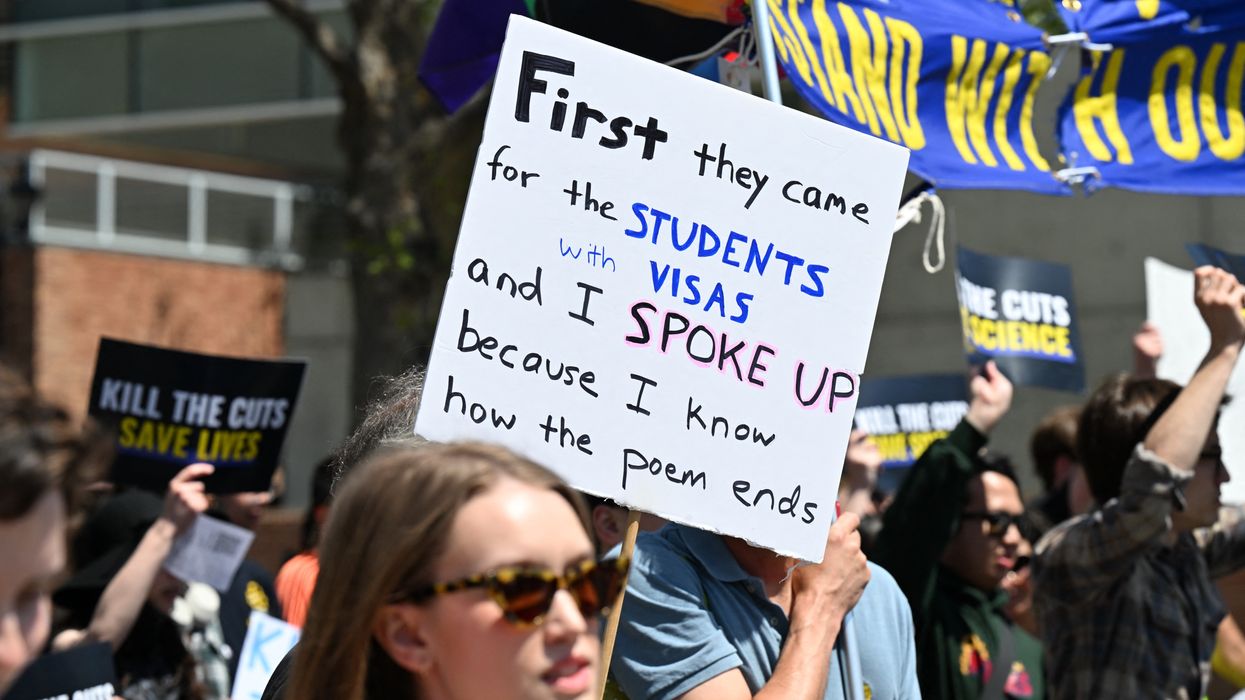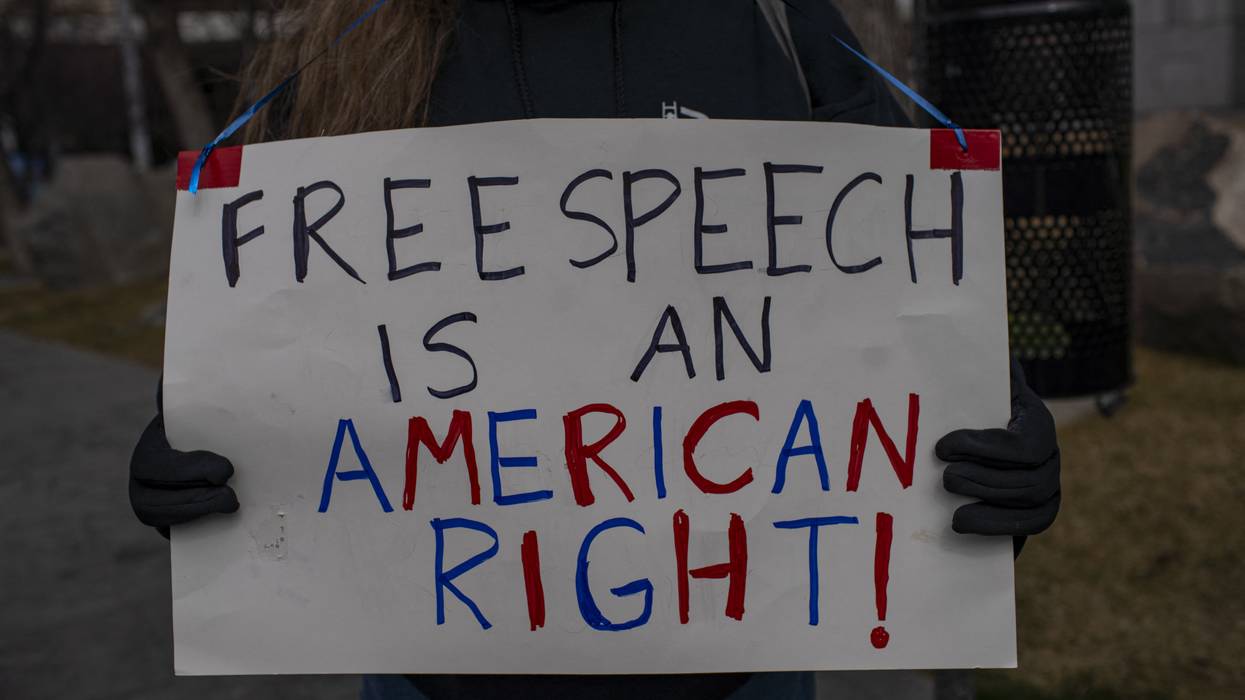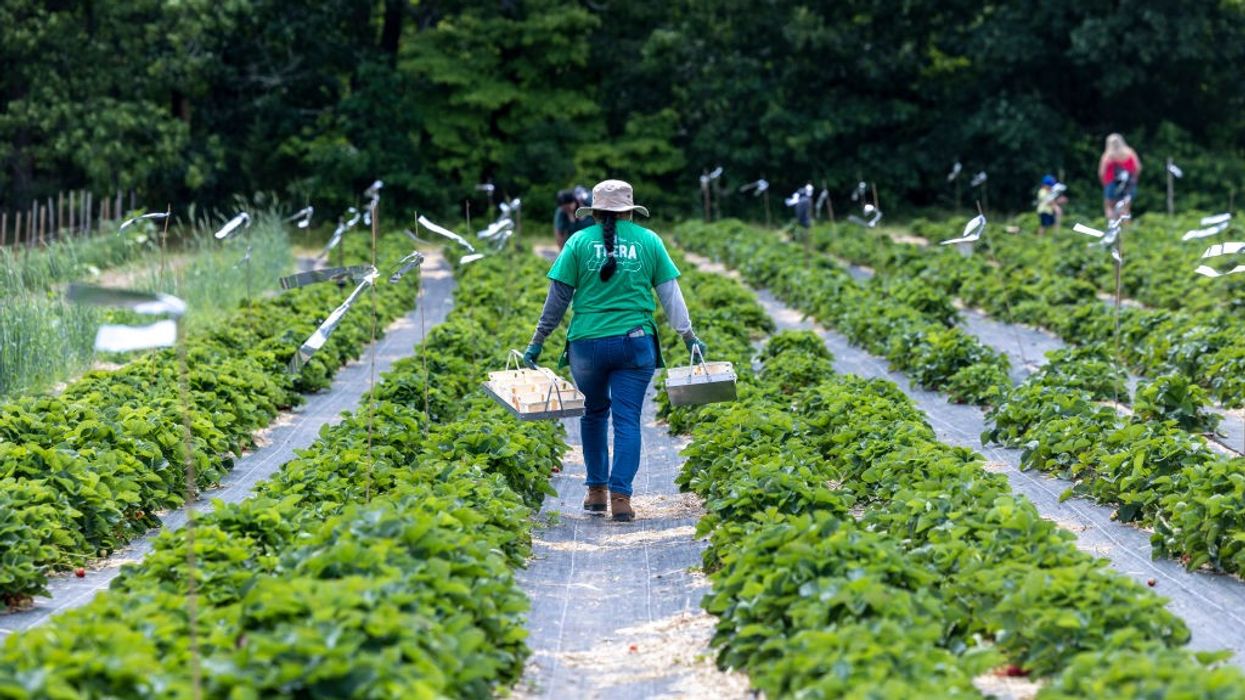"If First Amendment freedoms are compromised, our democracy will be compromised, too," wrote the groups. "Democracy and free speech are inextricably linked. If we are to govern ourselves, we must be able to inquire, speak, write, associate, and protest without fear of governmental retaliation."
It followed several recent victories for some international students who have been arrested for expressing opposition to the United States' support for Israel. Tufts University student Rümeysa Öztürk was marked for deportation and sent thousands of miles away from her home in Massachusetts to a detention facility in Louisiana for writing an op-ed calling on her school to divest from companies benefiting from Israel's assault on Gaza—and was released earlier this month, with a judge saying her detention was a clear assault on the First Amendment.
"If our democracy is to survive, the freedoms of speech and the press need a vigorous, determined defense. Leaders of this country's most powerful, well-resourced, and prestigious institutions must play a larger part in this effort."
Georgetown University scholar Badar Khan Suri was released from immigration detention in Texas last week; he was apparently targeted by the Trump administration for his support for Palestinian rights and because his father-in-law, Ahmed Yousef, was a former adviser to a Hamas leader. Yousef has publicly condemned Hamas' October 2023 attacks.
Columbia graduate Mohsen Mahdawi wore a keffiyeh over his robe at commencement on Monday in solidarity with Palestinians—and received a standing ovation—less than a month after he was freed from detention. He had also been marked for deportation for organizing pro-Palestinian protests.
But another Columbia graduate, Mahmoud Khalil, remains in an Immigration and Customs Enforcement (ICE) detention center in Louisiana more than two months after being accosted at his campus apartment along with his pregnant wife and hustled into an unmarked car by immigration agents for his role in last year's pro-Palestinian protests.
The open letter on Monday did not mention Columbia University by name, but condemned universities and organizations that have capitulated to the White House.
Columbia trustees allegedly collaborated with ICE to detain Khalil, and when threatened with the revocation of $400 million in federal grants and contract, agreed to take a number of steps the Trump administration claimed were aimed at "fighting antisemitism." The school agreed to impose a ban on masks, appointed an administrator to oversee Middle Eastern and Palestinian studies, and hire "special officers" with the authority to swiftly remove people from campus.
"The logic that leads even powerful institutions to compromise or submit in these circumstances is of course easy to understand," reads the open letter. "But when one institution 'bends the knee,' its peers face increased pressure to do the same. Each surrender makes the assertion of First Amendment rights more costly and more perilous. We fear that if major institutions continue to submit rather than stand on their rights, the freedoms of speech and the press will be seriously and perhaps irrecoverably weakened."
Along with its attacks on higher education, the Trump administration has targeted major law firms—terminating their federal contracts and limiting their employees from entering federal buildings—in retaliation for their representation of his political opponents.
Some law firms have filed legal challenges against the president—and won—but others, including Skadden, Arps, Slate, Meagher & Flom, have negotiated with the administration, offering pro bono legal services and promising to end diversity, equity, and inclusion initiatives.
"These actions call for a forceful, uncompromising response. Some institutions have countered in exactly this way, to their credit," wrote the free speech groups on Monday. "It has been disheartening, however, to see so many others capitulating to the administration's unconstitutional demands rather than asserting their rights."
The letter also condemned the Trump administration's decision to bar legal scholars from providing information to the International Criminal Court, which has issued a warrant for the arrest of Israeli Prime Minister Benjamin Netanyahu; its rule banning The Associated Press from White House press briefings for its refusal to call the Gulf of Mexico by Trump's chosen name, the "Gulf of America"; and the Federal Communications Commission's threat to revoke the licenses of TV and radio networks if the president disagrees with their news coverage.
"In little more than 100 days, President Trump and the agencies under his control have threatened First Amendment rights through a breathtaking array of actions," reads the letter. "If our democracy is to survive, the freedoms of speech and the press need a vigorous, determined defense. Leaders of this country's most powerful, well-resourced, and prestigious institutions must play a larger part in this effort."
Jameel Jaffer, executive director of the Knight First Amendment Institute, warned that "First Amendment freedoms will wither if institutional leaders don't assert and defend them."
"This letter is meant to be a call to duty," he said, "and to civic courage.”




